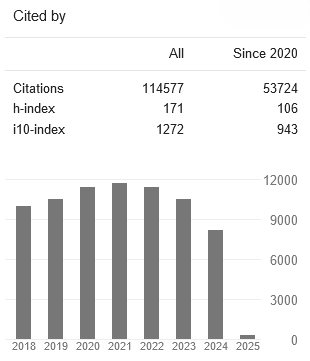Modelling the Acceptance and Use of Electronic Medical Records from Patients’ Point of View: Evidence from Saudi Arabia
- Dalal Bamufleh
Abstract
Background: The employment of IT in healthcare reflects a need to meet the increasing demands of patients and to upgrade the quality and productivity of the provided services. However, the literature demonstrates many failures in systems and IT technology implementation. One of the reasons behind these failures is users’ resistance. The ministry of health (MOH) in Saudi Arabia (SA) has prioritized the embracing of new technologies that could improve the healthcare services, such as electronic medical record (EMR) systems. On the other hand, studies that address the acceptance and use of hospital information systems (HIS) and EMRs in SA from patients’ standpoint are scarce. The aim of this study was to explore patients’ acceptance of an EMR system by proposing a model adapted from the technology acceptance model (TAM) and the unified theory of acceptance and use of technology (UTAUT). Methods: An online questionnaire was used where questions were based on the proposed model constructs (facilitating conditions (FC), perceived ease of use (PEOU), perceived usefulness (PU), attitude (ATT), and behavioral intention (BI)). 116 patients responded to the questionnaire. The model was then tested to identify the factors that affect patients’ intention to use the online services of the EMR. Results: The analysis of the research model suggested that (1) FCs influenced the degree of system’s PEOU. (2) PEOU affected the EMR’s PU. (3) PU affected patients’ ATT toward using the EMR. (4) A positive effect is found between ATT and BI to use EMR. Conclusion: The study has implications for healthcare IT acceptance research and efforts in SA, as to date patients’ perspectives have received little attention. The research also makes a theoretical contribution as it validated the proposed model.- Full Text:
 PDF
PDF
- DOI:10.5539/ijbm.v16n7p12
Journal Metrics
Google-based Impact Factor (2023): 0.86
h-index(2023): 152
i10-index(2023): 1168

Index
- Academic Journals Database
- ACNP
- AIDEA list (Italian Academy of Business Administration)
- ANVUR (Italian National Agency for the Evaluation of Universities and Research Institutes)
- Berkeley Library
- CNKI Scholar
- COPAC
- EBSCOhost
- Electronic Journals Library
- Elektronische Zeitschriftenbibliothek (EZB)
- EuroPub Database
- Excellence in Research for Australia (ERA)
- Genamics JournalSeek
- GETIT@YALE (Yale University Library)
- IBZ Online
- JournalTOCs
- Library and Archives Canada
- LOCKSS
- MIAR
- National Library of Australia
- Norwegian Centre for Research Data (NSD)
- PKP Open Archives Harvester
- Publons
- Qualis/CAPES
- RePEc
- ROAD
- Scilit
- SHERPA/RoMEO
- Standard Periodical Directory
- Universe Digital Library
- UoS Library
- WorldCat
- ZBW-German National Library of Economics
Contact
- Stephen LeeEditorial Assistant
- ijbm@ccsenet.org
